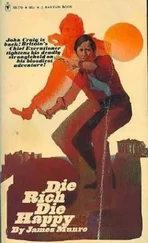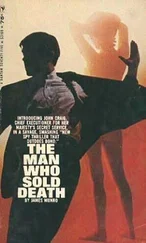James Munro - The Innocent Bystanders
Здесь есть возможность читать онлайн «James Munro - The Innocent Bystanders» весь текст электронной книги совершенно бесплатно (целиком полную версию без сокращений). В некоторых случаях можно слушать аудио, скачать через торрент в формате fb2 и присутствует краткое содержание. Жанр: Старинная литература, на английском языке. Описание произведения, (предисловие) а так же отзывы посетителей доступны на портале библиотеки ЛибКат.
- Название:The Innocent Bystanders
- Автор:
- Жанр:
- Год:неизвестен
- ISBN:нет данных
- Рейтинг книги:4 / 5. Голосов: 1
-
Избранное:Добавить в избранное
- Отзывы:
-
Ваша оценка:
- 80
- 1
- 2
- 3
- 4
- 5
The Innocent Bystanders: краткое содержание, описание и аннотация
Предлагаем к чтению аннотацию, описание, краткое содержание или предисловие (зависит от того, что написал сам автор книги «The Innocent Bystanders»). Если вы не нашли необходимую информацию о книге — напишите в комментариях, мы постараемся отыскать её.
The Innocent Bystanders — читать онлайн бесплатно полную книгу (весь текст) целиком
Ниже представлен текст книги, разбитый по страницам. Система сохранения места последней прочитанной страницы, позволяет с удобством читать онлайн бесплатно книгу «The Innocent Bystanders», без необходимости каждый раз заново искать на чём Вы остановились. Поставьте закладку, и сможете в любой момент перейти на страницу, на которой закончили чтение.
Интервал:
Закладка:
"Weaknesses?"
"He hates being beaten," Craig said. "It makes him angry . . . But it won't happen often. He'd have beaten me—if it hadn't been for that phone call."
"You think I could use those two then?"
"I know it," said Craig. Loomis sighed, and Craig thought of whales wallowing.
"Would they break easy?" he asked.
"Ask the psychiatrists," Craig said.
"Oh I will, son. Over and over I'll ask them. But just now I'm asking you. You've had what you might call first hand experience."
"They'll break eventually," said Craig. "Everybody does. But they'll last as long as most."
"Good," said Loomis. "They can be your assistants then. I got a job for you."
"A month ago you said I was finished," said Craig.
"I was wrong," said Loomis. "It's happened before. Twice. You showed I was wrong the way you handled those three. Royce in particular. And the Benson person. Women can't get at you, son. Not any more."
"Royce and I won't get on all that well," said Craig. "Not after what I did to him. And the girl—she's bright. Maybe she knows about me. I couldn't work with her if she knew."
"They won't work with you," said Loomis. "They'll assist you by being decoys. If they see you in the street they won't look at you twice."
"What's the job?" said Craig.
"You're going to Turkey to pick up a feller," Loomis said. "And when you've got him you're going to take him to Israel. But first you're going to New York. There's people in New York can tell you all about this feller. Name of Kaplan. The Russians want him too."
"That's why you're setting up decoys?"
"That's why," said Loomis. "They got him in one of their 'Most Urgent' files. You know what that means."
"It means he's going to die," said Craig.
"That's not our business—provided we get him to Israel first. And that's your job. I'll send you the file we got on him. Work on it in your office. It doesn't leave here . . . You fly to New York on Thursday. That's all on file too .. . You better get on with it, son."
Craig levered himself out of the chair and limped to the door. He felt old and battered and very tired. Three days in the gym would help, but not enough. The savage concentration of strength he had once summoned at will, was gone, perhaps forever.
"Why me, Loomis?" he asked.
"You're not what you were," said Loomis, "but you're still the best I've got for this sort of caper."
"The KGB are after him. 'Most Urgent.' That means they'll be after me too."
"Not if we use decoys," said Loomis.
"They're just out of school. What chance will they have?" said Craig.
"Very little," said Loomis. "But that isn't your business."
CHAPTER 4
The Kaplan file was thin. Aaron Israel Kaplan had been born in Riga in 1915, the son of a rabbi, and the family-had moved to Moscow just before the Revolution. By 1932 he was a Komsomol leader and a biology student at Moscow University and had broken with his family; by 1936 he was researching in agricultural method at the Lenin Institute, and had begun a crash course in water engineering. His overriding interest was the cultivation of crops in dry areas, and papers he had written on this had gone as far as the Central Committee when the war came. In 1938 his father had died, but Kaplan had not been present at the funeral. During the war Kaplan had fought with distinction as a political commissar attached to an infantry regiment that had finished up in East Germany. After it he had gone back to work at the Lenin Institute, at first with success. He had survived the Lysenko scandal, and once again the Central Committee had read his papers. There was talk of financing a scheme of his—a capital investment of seven million rubles. He had nine assistants, limitless opportunity for research, and access to the Institute's papers, no matter how highly classified. Then, quite suddenly, he had crashed. His scheme was dropped, his research team broken up. Then his membership at the Institute was revoked, his car and dacha taken from him. For three months he worked as a factory hand, then he was arrested, tried, and sentenced to Siberia. His sentence was "indeterminate," which meant he stayed there till he died. The camp he went to, Volochanka, was the hardest of them all. His sentence had never been revoked, and yet he had been reported in Turkey. He was one of three brothers. One had been killed at Stalingrad and the other had left Russia with an uncle in 1922 and was living in New York—Marcus Kaplan, 189 West 95th Street. The most recent photographs of Kaplan had been taken in 1939 and had all the fuzziness to be expected of a black and white print taken with a box camera, ineptly handled. It suggested that Kaplan was tall, scholarly, and thin, but his features were anonymous.
Craig turned the page. There followed a note in Loomis's small, neat writing: "For further information on Kaplan consult his brother and Laurie S. Fisher, the Graydon Arms, 145 East 56th Street." On the next page was a description of Volochanka. Craig wondered how any man could possibly escape from such a place. After that there came key information about Turkey, the sort of stuff he would need to get Kaplan out without the Russians knowing, but no information about where he was. Even Loomis didn't know that. That had to wait until he got to New York, and then Laurie S. Fisher would tell him, if he thought him good enough. The file didn't tell him why Kaplan was important, either, but that wasn't Craig's business. Craig's business was to get him to Israel. He telephoned Sanuki Hakagav/a at the house in Kensington and made an appointment for that evening, then went back to the file and read it through again and again. Gradually the information it contained began to stick. In two days he would never need it again.
The Hakagawas had the ground floor and basement of a house off Church Street, one of a series of Edwardian monsters of salmon-pink brick relieved with stone painted a glittering white. The exterior was fussy, ornate, blatantly opulent, the interior furnished with the same spare elegance of Japanese who still lived in the traditional style so far as London would let them. Sanuki opened the door to him, slim and ageless in a sweater and jeans.
"Please go down to the gymnasium," she said. "Shinju is waiting for you."
Craig went down the steps to the changing rooms. There was a judo costume waiting for him, and a black belt. He changed slowly, allowing his mind to achieve the state of wary relaxation essential before a fight with Shinju Hakagawa. When he went in the Japanese was already waiting for him, on the dojo mat. Craig joined him on the mat and the two men bowed in the ritual of greeting.
"What style shall we fight?" Hakagawa asked. "We'll just fight," said Craig.
It was like very fast chess, every move played out to the limits of strength, every throw a potential opening to the checkmate that could end your life if you didn't get up, or counter, in time. At the end of twenty minutes Hakagawa signaled a halt, and both men were steaming with sweat. Hakagawa produced towels, and they dabbed at their sweating bodies, then knelt, facing each other, on the mat.
"You have been drinking too much," said Hakagawa. "You are slow. This time I could have killed you." "I'm old, Hak," Craig said.
"Not as old as me. I am fifty-four years old." Craig looked at the squat, bullet-headed Japanese. His face was astonishingly beautiful and almost unlined.
"Show me your hands."
Craig held out his hands and Hakagawa very carefully examined the lines of hard skin along their edges, and across the knuckles.
"You have neglected them," said Hakagawa. "Suppose I asked you to punch the board."
"I couldn't do it," said Craig.
"It will take you two weeks to get your hands right. You will practice here every day."
Читать дальшеИнтервал:
Закладка:
Похожие книги на «The Innocent Bystanders»
Представляем Вашему вниманию похожие книги на «The Innocent Bystanders» списком для выбора. Мы отобрали схожую по названию и смыслу литературу в надежде предоставить читателям больше вариантов отыскать новые, интересные, ещё непрочитанные произведения.
Обсуждение, отзывы о книге «The Innocent Bystanders» и просто собственные мнения читателей. Оставьте ваши комментарии, напишите, что Вы думаете о произведении, его смысле или главных героях. Укажите что конкретно понравилось, а что нет, и почему Вы так считаете.












